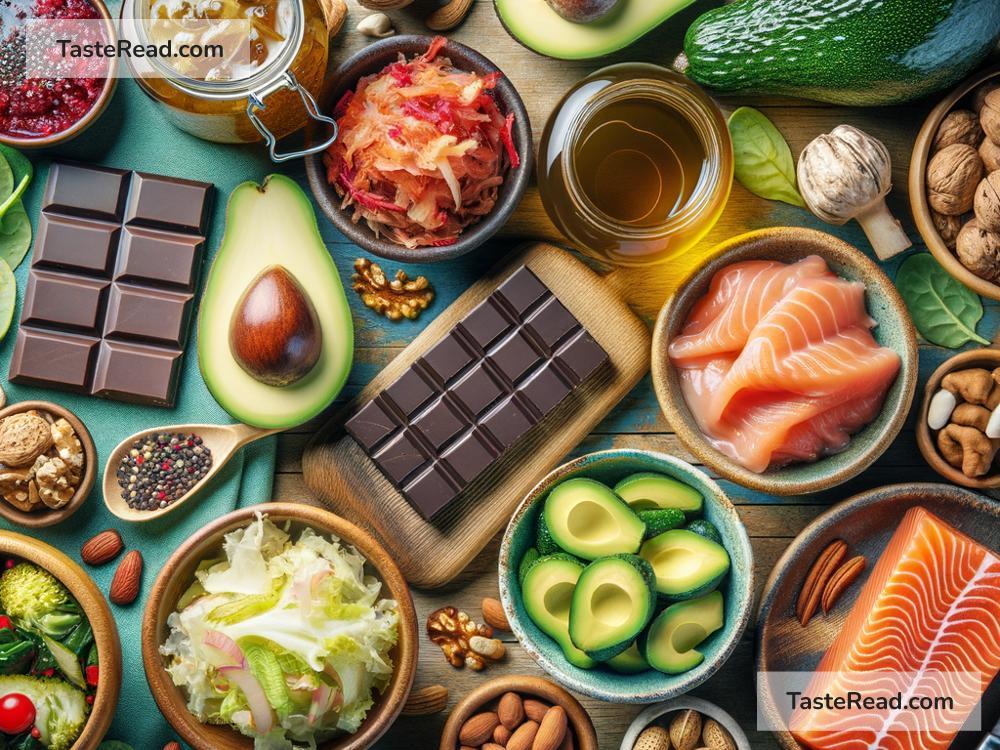Foods That Support Gut-Brain Communication
Did you know your gut and brain are constantly talking to each other? They are connected by something called the “gut-brain axis,” which is like a two-way street linking your digestive system to your central nervous system. This connection plays a big role in your mood, mental clarity, and overall health. And guess what? The foods you eat can help improve this communication!
In this blog, we’ll explore how certain foods can support the gut-brain connection and keep your body and mind both feeling great. Don’t worry—we’ll keep it simple and easy to understand.
Why the Gut-Brain Connection Matters
Your gut and brain communicate using nerves, hormones, and chemicals called neurotransmitters. One key player is the vagus nerve, which allows your gut and brain to send signals to each other. Another important part of this relationship is your gut microbiome, a collection of trillions of bacteria living in your digestive system. These bacteria aren’t just for digestion—they also help produce neurotransmitters like serotonin, which affects your mood, sleep, and even feelings of happiness.
When your gut is healthy, your brain benefits too. But if your gut is struggling—due to poor diet, stress, or illness—it can lead to issues like anxiety, brain fog, or even depression. That’s why eating the right foods is so important. By giving your gut what it needs, you’re also helping your brain thrive.
Top Foods for Supporting Gut-Brain Communication
Let’s dive into some foods that are known to strengthen the gut-brain connection. These aren’t just good for you—they’re delicious too!
1. Fermented Foods
Fermented foods are packed with probiotics, the “good bacteria” that your gut loves. Probiotics help maintain a balanced gut microbiome, which can lead to better mental health. Some great options include:
– Yogurt (choose unsweetened versions for the healthiest choice)
– Sauerkraut
– Kimchi
– Miso
– Kefir
These foods can increase the diversity of bacteria in your gut, which is directly linked to a happier, less stressed brain.
2. Fiber-Rich Foods
Fiber acts as food for the bacteria in your gut. These bacteria break fiber down and produce short-chain fatty acids, which promote brain health and reduce inflammation. Fiber-rich foods include:
– Whole grains like oats and quinoa
– Fruits such as apples, bananas, and berries
– Vegetables like broccoli, sweet potatoes, and carrots
– Beans, lentils, and chickpeas
When you eat more fiber, you’re basically giving your gut bacteria the fuel they need to thrive—and in turn, support your brain.
3. Fatty Fish
Fatty fish like salmon, mackerel, and sardines are loaded with omega-3 fatty acids, which are excellent for brain health. Omega-3s help reduce inflammation and support the production of neurotransmitters that are critical for mood regulation. If you’re not a fan of fish, you can also find omega-3s in flaxseeds, chia seeds, and walnuts.
4. Dark Chocolate
Yes, chocolate can be good for your gut—if you choose the right kind! Dark chocolate (look for at least 70% cocoa) contains compounds called flavonoids, which are antioxidants that reduce inflammation and support brain health. Plus, dark chocolate can improve blood flow to the brain, helping you concentrate better. Just remember to enjoy it in moderation!
5. Nuts and Seeds
Nuts and seeds are rich in healthy fats, fiber, and plant-based compounds that are excellent for gut and brain health. Almonds, walnuts, cashews, sunflower seeds, and chia seeds are all great choices. You can snack on them raw, or sprinkle them on salads, oatmeal, or yogurt.
6. Colorful Fruits and Vegetables
Brightly colored fruits and veggies usually have antioxidants, which protect your brain and gut from damage caused by stress and inflammation. Berries (like blueberries and strawberries), spinach, kale, tomatoes, and peppers are all loaded with these health-boosting compounds. Eating a variety of colors ensures you’re getting a mix of nutrients.
7. Herbs and Spices
Certain herbs and spices can be great for your gut and brain too! Turmeric, for example, contains curcumin, which fights inflammation and boosts brain health. Ginger, garlic, and cinnamon are other great options. Adding these to your meals can spice things up while supporting your gut-brain axis.
Tips for a Gut-Friendly Lifestyle
Eating gut-healthy foods is a great start, but there are other habits that can help:
1. Stay hydrated – Drinking plenty of water helps your digestion work smoothly and keeps your gut lining healthy.
2. Reduce stress – Stress can disrupt the gut-brain connection and make digestion harder. Practice stress-relief techniques like deep breathing, meditation, or yoga.
3. Get enough sleep – Your gut and brain both benefit from 7-9 hours of quality sleep each night.
4. Eat slowly – Chewing your food thoroughly and eating mindfully helps your gut digest and absorb nutrients better.
Final Thoughts
Your gut and brain are more connected than you might think, and the foods you eat can have a big impact on how they communicate. Fermented foods, fiber, fatty fish, dark chocolate, nuts, colorful produce, and herbs can all help keep both your gut and brain healthy and happy. By adding these foods to your diet and adopting gut-friendly habits, you’re giving your body the tools it needs to thrive.
Remember, small changes can make a big difference. So, next time you reach for a snack or plan a meal, consider how it can support your gut—and make your brain smile too!


